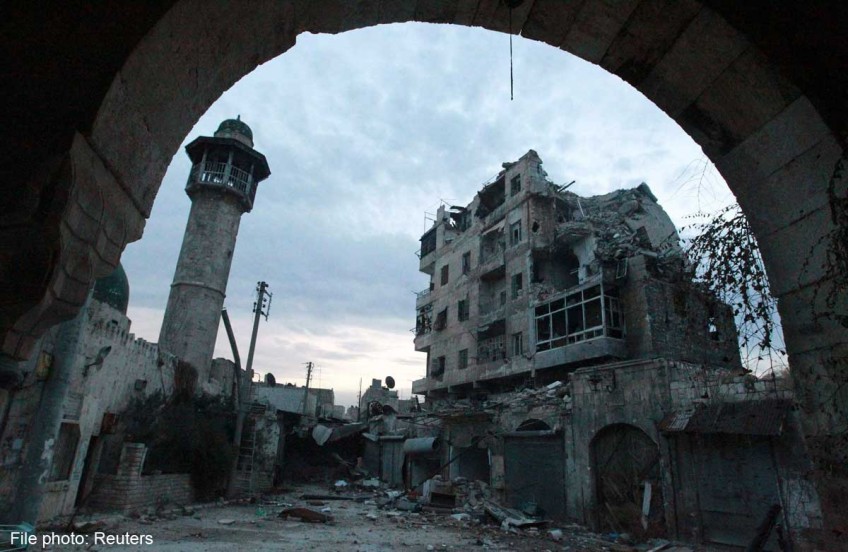Syria must accelerate chemical disarmament: watchdog

THE HAGUE - The world's chemical watchdog called Friday for Syria to "pick up the pace" in shipping out its chemical weapons stockpile after a key deadline was missed.
"The need for the process to pick up the pace is obvious," Director General Ahmet Uzumcu said in a statement after a meeting of the Organisation for the Prohibition of Chemical Weapons' (OPCW) executive council on Thursday in The Hague.
Sources said Thursday's meeting was divided between Western countries who wanted a strongly-worded approach and countries like Syria allies Russia and China, who wanted a more lenient approach to Damascus.
Just two small shipments of chemicals have so far left the Syrian port of Latakia, accounting for less than four per cent of the country's declared arsenal of most dangerous chemicals, the United States said this week.
Around 700 tonnes of chemicals were supposed to have left Syria by December 31, putting the ambitious disarmament project weeks behind schedule.
Uzumcu earlier this month spoke to UN Secretary General Ban Ki-moon and "they both agreed that it was necessary for the removal process to pick up pace," said an OPCW document published earlier this week.
Syria has told the OPCW that it is "making intensive efforts to prepare for, and accelerate, the transportation of chemicals, and that it is currently working on a tentative schedule for completing the transportation of chemicals."
The UN Security Council last year backed a US-Russian deal to eliminate Syria's vast chemical arsenal as a way to avert US strikes threatened after chemical attacks near Damascus that Washington blamed on the regime.
Under the agreement, Syria's entire chemical arsenal is to be eliminated by June 30.
Washington on Thursday accused Syria of dragging its feet.
"Almost none of the Priority One chemicals have been removed and the Syrian government will not commit to a specific schedule for removal," said Robert Mikulak, who head the US delegation at the OPCW.
He slapped down Syria's explanation that a delay was due to security concerns and an insistence on additional equipment like armoured jackets for shipping containers, electronic countermeasures and detectors for improvised explosive devices.
"Additional equipment demanded by Syria is not needed for the safe transport of the chemicals to Latakia," Mikulak said in a statement to the OPCW's Executive Council.
"These demands are without merit and display a 'bargaining mentality' rather than a security mentality," said Mikulak.
State Department spokeswoman Jen Psaki on Thursday said Syria was "dragging its feet."
Syria has declared around 700 tonnes of most-dangerous chemicals, 500 tonnes of less-dangerous precursor chemicals and around 122 tonnes of isopropanol in its arsenal.
Almost all the chemicals and precursors, except for isopropanol which is to be destroyed within the war-torn country, are supposed to be removed by February 5.
The deadline will almost certainly not be met, sources close to the OPCW have said.
The around 120 tonnes of isopropanol must be destroyed by March 1, while the next executive council meeting is to be held on February 21.
Syrian President Bashar al-Assad has been battling rebels for nearly three years, following his government's brutal crackdown on a pro-democracy uprising that began in March 2011.